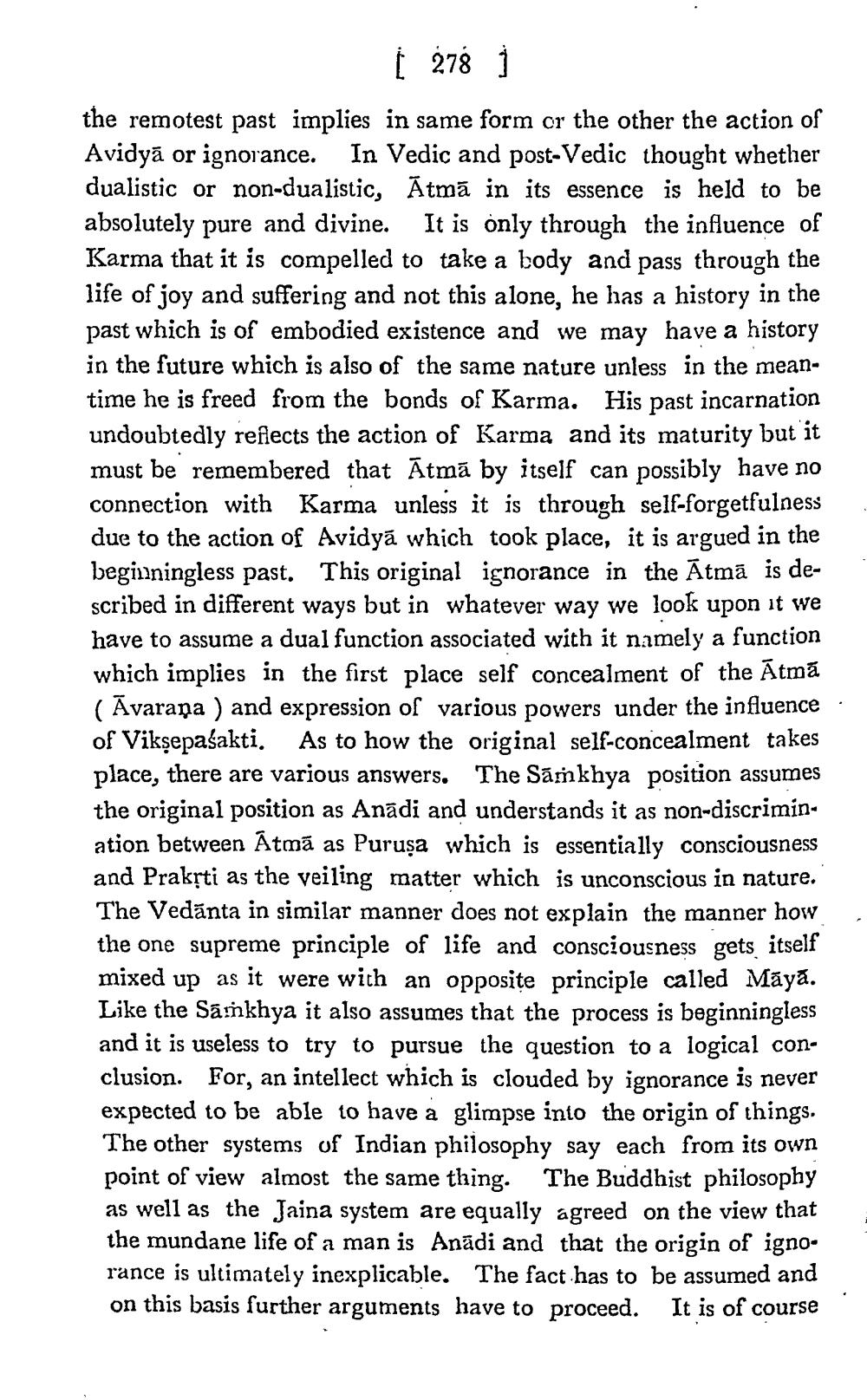________________
278 1
the remotest past implies in same form or the other the action of Avidya or ignorance. In Vedic and post-Vedic thought whether dualistic or non-dualistic, Atma in its essence is held to be absolutely pure and divine. It is only through the influence of Karma that it is compelled to take a body and pass through the life of joy and suffering and not this alone, he has a history in the past which is of embodied existence and we may have a history in the future which is also of the same nature unless in the meantime he is freed from the bonds of Karma. His past incarnation undoubtedly reflects the action of Karma and its maturity but it must be remembered that Atma by itself can possibly have no connection with Karma unless it is through self-forgetfulness due to the action of Avidya which took place, it is argued in the beginningless past. This original ignorance in the Atma is described in different ways but in whatever way we look upon it we have to assume a dual function associated with it namely a function which implies in the first place self concealment of the Atma ( Āvaraņa ) and expression of various powers under the influence of Vikṣepasakti. As to how the original self-concealment takes place, there are various answers. The Samkhya position assumes the original position as Anādi and understands it as non-discrimination between Atma as Purușa which is essentially consciousness and Prakṛti as the veiling matter which is unconscious in nature. The Vedanta in similar manner does not explain the manner how the one supreme principle of life and consciousness gets itself mixed up as it were with an opposite principle called Māyā. Like the Samkhya it also assumes that the process is beginningless and it is useless to try to pursue the question to a logical conclusion. For, an intellect which is clouded by ignorance is never expected to be able to have a glimpse into the origin of things. The other systems of Indian philosophy say each from its own point of view almost the same thing. The Buddhist philosophy as well as the Jaina system are equally agreed on the view that the mundane life of a man is Anadi and that the origin of ignorance is ultimately inexplicable. The fact has to be assumed and on this basis further arguments have to proceed. It is of course




